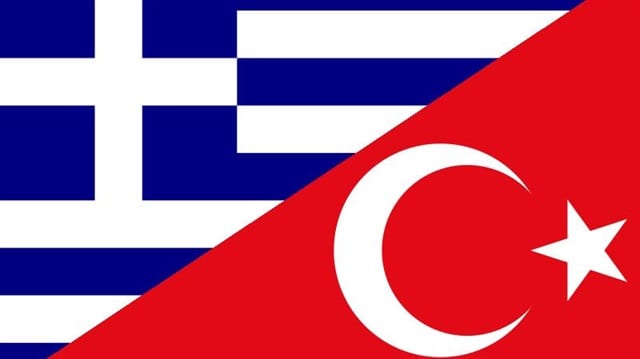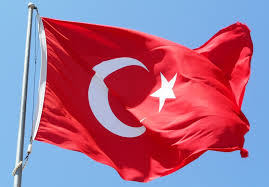The most recent escalation in tensions exposes that rather than coming to terms with their old rivalry, tensions between the old foes continue to surface
By Yeni Safak
History is an unquestionable source of inspiration in the implementation of foreign and domestic policy. This is no exception in Turkish-Greek relations. In fact, Turkish-Greek relations have always revolved around historical facts as well as myths, which still dominate the political spectrum. A sense of historical rivalry, combined with the Ottoman legacy led to a never-ending competition between the two countries. In this competition, the only difference is Turkey proved more successful than Greece in terms of its economic and military power since the establishment of the Turkish Republic. Hence, we analyze why Greek policies and politicians have been aggressively attacking Turkey by making irredentist statements vis-a vis Turkish territory. Additionally we look at how this ancient rivalry has allowed for Greece to become a safe haven for terrorists that threaten the existence and integrity of the Turkish Republic.
The ancient-hatred against the Ottoman legacy has in some form shaped the perception of the people in Greece. In this hatred, Turkey and the Turks are being portrayed as the culprits for Greece`s problems, which the extreme right groups in the country took as a starting point for their anti-Turkish rhetoric to rally masses behind them. This resulted in nationalism to reign over Greek politics, which put Turkish-Greek relations in jeopardy for two reasons.
Firstly, The Turkish population living in Greece has become a prime target for Greek nationalists, which undoubtedly increases the tension between Turkey and Greece. The ill treatment of the Turkish population in Greece as well as the application of oppressive politics on them has aptly amplified Turkish skepticism on Greek politics. Additionally, this also paved the way for a parallel to rise out of Turkish nationalism in the name of protecting Turks abroad, particularly in Greece. As a result, a possible reconciliation or, at least, the rekindling of ties has been blocked by Greece’s nationalist agenda.
Secondly, a potential partnership between that of Turkey and Greece could resolve many regional problems, stretching from Kosovo to Cyprus. However, the skepticism of Greece in mending ties has prevented both countries from playing such a role in the region. More specifically, these biased nationalistic slogans and rhetoric that Greece holds onto have become critically dangerous in times of crisis between the two countries, particularly in the Cypriot crisis in 1974. For the first time in NATO`s history, the two NATO members came to the edge of declaring war against each other. Since then, Turkey and Greece took retaliatory steps against each other and the most critical one had taken place in 1996 over the Kardak islet. Therefore, the recent crisis around the planting of a Greek flag on an islet off the Turkish coast of Didim exposes that this anti-Turkish rhetoric is alive and well.
While tensions between Greece and Turkey have remained strained. The most recent escalation in tensions however exposes that rather than coming to terms with their old rivalry, tensions between the old foes continue to surface. Turkey’s concerns regarding Greece’s behavior are also linked to Greece harboring terrorists that threaten the Turkish Republic. These tensions have been brewing further as a Greek court denied an extradition request by Turkey for the Turkish soldiers linked to the Fetullah Terrorist Organization (FETÖ) – who fled to Greece after the failed coup attempt against President Recep Tayyip Erdoğan in Turkey in July 2016.
A prominent issue that blocks the reconciliation between the two countries is that although both countries have signed agreements regarding the extradition of people linked to acts of terrorism, in which the penal code applies, Greece continues to deny Turkey’s extradition requests. The denial of Turkey’s demand for an extradition for the soldiers linked to FETÖ – which it brands as traitors, comes as a slap in the face. This is as a result of Greece historically being a safe haven for terrorists affiliated with the Kurdistan Workers’ Party (PKK), which is deemed a terrorist organization by Turkey, the EU and the U.S. If we are to take a look back to the events that ensued in 1999, in which the leader of the PKK, Abdullah Öcalan was protected from Turkey by Greek authorities, we are better able to understand Turkey’s concerns regarding the denial of the extradition and why these relations remained strained.
It is important to note that this was a time in history in which tensions between the two NATO allies where at an all-time high. Rather than working on creating a dialogue in combatting terrorism together, Greece continued to harbor terrorists that it knew was of vital importance to Turkey. Greece also harbors DHKP-C terrorists and in March 2018, Turkey’s demand for the extradition of Hasan Biber, a member of the outlawed far-leftist group DHKP-C ,was refused by a Greek court.
This lack of respect for Turkey’s national security reiterates that Greece’s foreign policy towards Turkey is no doubt fueled by its ancient hatred. Thus any hope at rekindling ties has been damaged as Greece continues to host terrorists who openly target Turkey’s existence and integrity. Moreover, these developments not only thwart reconciliation efforts between the two NATO ally’s but also expose Greece’s anti-Turkish rhetoric.
Written by Pinar Tankir, Associate Researcher at TRT World Research Centre, and Gorkem Dirik, Assistant Researcher at TRT World Research Centre.



















